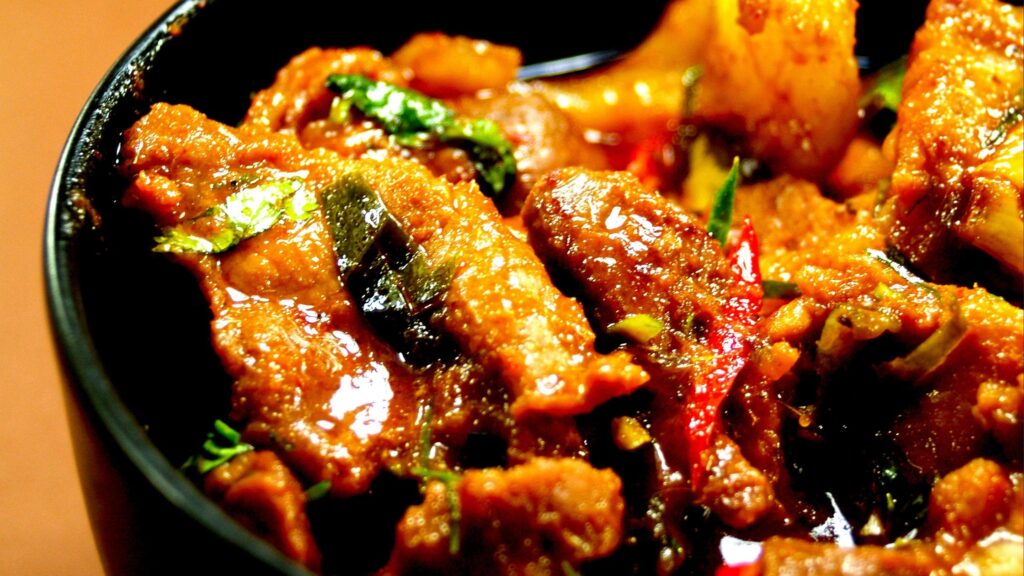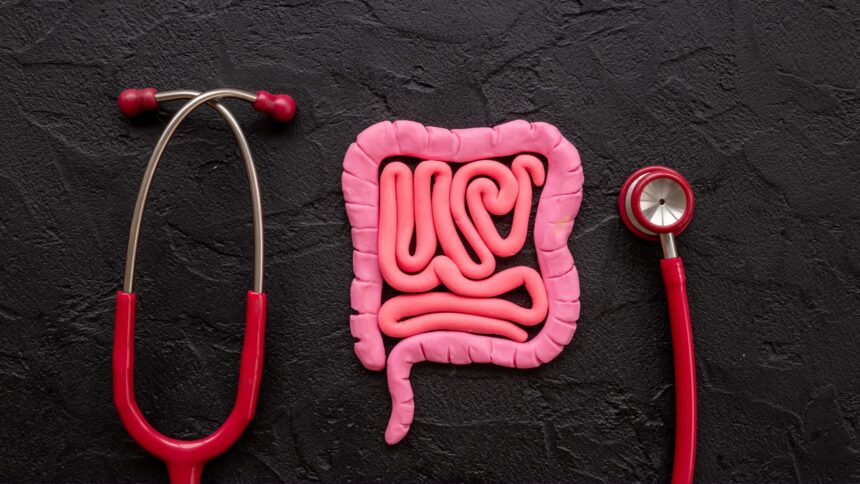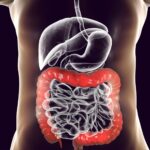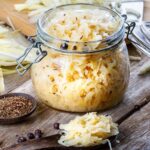Gut inflammation, also known as gastrointestinal inflammation, occurs when the lining of the digestive tract becomes irritated and swollen. Long-term gut inflammation can lead to serious health issues, so it’s important to know how to stop it. This article provides five effective ways to reduce and prevent inflammation in the gut through lifestyle and dietary changes.
5 Ways to Reduce Digestive System Inflammation Naturally

1: Avoid Pro-Inflammatory Foods
One of the best ways to reduce gut inflammation is to avoid foods that promote inflammation within the digestive system. Many common foods contribute to inflammation when consumed regularly or in large quantities. Cutting back on pro-inflammatory ingredients like refined carbohydrates, unhealthy fats, excess sugar, and artificial flavorings can help calm an irritated gut.
Specifically, limiting the consumption of red and processed meats is recommended, as is reducing the intake of saturated fats found in fried foods, pastries, and full-fat dairy products. Beverages containing caffeine and alcohol also aggravate digestive inflammation. Minimizing or eliminating your intake of pro-inflammatory foods allows the gut lining a chance to heal. Over time, digestive symptoms like abdominal pain, bloating, and gas usually diminish.
2: Incorporate Anti-Inflammatory Superfoods
Certain nutrient-dense whole foods have impressive anti-inflammatory effects that can help stop gut inflammation. Incorporating these “superfoods” into your diet on a regular basis nourishes a healthy digestive system. Good choices to focus on include brightly colored fruits and vegetables, whole grains, fish, nuts, and seeds.
Some top gut-healing superfoods to emphasize are berries, kale, spinach, turmeric, ginger, garlic, fatty fish like salmon, walnuts, flaxseed, and extra virgin olive oil. Studies show compounds in these foods reduce markers of inflammation throughout the body. Eating anti-inflammatory produce, legumes and plant oils provide essential vitamins, minerals, and antioxidants that nourish and protect the digestive lining. A balanced, mostly plant-based diet helps counteract the damaging effects of chronic gut inflammation over time.
3: Manage Stress Levels Effectively
Chronic stress places significant physical demands on the body that promote inflammation. The link between stress and digestive troubles is well established – high levels of the stress hormone cortisol damage the gut barrier and dysregulate immune functions in the intestines. Learning to manage stress is therefore important for preventing and reducing gut inflammation.
Some natural stress-busters to incorporate into a daily routine include relaxing hobbies, gentle exercises like yoga, quality sleep, meditation, deep breathing, and spending time with supportive people. It’s also crucial to identify major stress triggers so you can minimize overcommitting or saying no when needed. Taking occasional time off work, prioritizing downtime activities, nurturing social connections, and finding healthy stress outlets all help offset the physical toll of everyday pressures. Managing stress preserves digestive health over the long run.
4: Consider a Probiotic Supplement
Our microbiomes refer to the communities of microorganisms living within us, including gut bacteria essential for immune function and digestion. An imbalance of gut flora known as dysbiosis frequently accompanies inflammation and health issues like irritable bowel syndrome. Probiotic supplements containing live active cultures can help restore microbial balance for a calmer digestive system.
Bifidobacteria and lactobacilli are common probiotic strains with documented anti-inflammatory properties. Look for broad-spectrum probiotic supplements containing multiple gut-friendly strains in sufficient amounts, typically over 5 billion colony-forming units daily. Most people find relief from digestive symptoms like bloating, gas or constipation by taking probiotics consistently as a natural remedy for gut inflammation. Just be sure to check with a doctor before starting any new supplements.
5: Maintain a Healthy Lifestyle
In addition to eating right and managing stress, certain healthy lifestyle choices also counteract digestive inflammation over the long run:
- Exercise regularly. Both moderate cardio activity and gentle strength training reduce abdominal fat and systemic inflammation.
- Drink plenty of pure water. Staying hydrated regulates gut motility and benefits digestive health.
- Quit smoking or vaping immediately. Tobacco smoke sensitizes the gut and worsens existing inflammation issues.
- Limit alcohol intake. In moderation, some alcoholic drinks are ok but excess alcohol harms the digestive lining over time.
- Get sufficient quality sleep. Rest is required for the natural repair of tissues, including an inflamed gastrointestinal tract.
- Use mindfulness techniques. Simple practices like meditation, deep breathing, and gratitude journaling relax both mind and body.
What are the three superfoods for your gut?
There are several nutritious foods that are considered gastrointestinal superstars for their potent anti-inflammatory and gut-healing properties. Here are three of the top superfoods for soothing and strengthening your insides.
Kefir – This fermented milk product is rich in probiotics, which are beneficial gut bacteria that help regulate inflammation and support a healthy digestive balance. Kefir contains over 30 probiotic cultures that populate your intestinal tract, reducing unhealthy bacteria and optimizing nutrient absorption. Its high protein and calcium content also benefit digestive function. Regularly including kefir in your diet can alleviate gut issues like constipation, IBS, and leaky gut syndrome.
Yogurt – Like kefir, yogurt delivers a substantial serving of gut-strengthening probiotics, primarily the Lactobacillus and Bifidobacterium varieties. These tiny lifeforms produce lactic acid, protecting the gut wall from damage. Yogurt also provides minerals like magnesium for relaxing intestinal muscles and vitamin D for supporting absorption. Probiotic yogurt is easier on sensitive stomachs than other dairy and is very filling, making it ideal for gut-focused diets.
Prebiotic Vegetables – Fibrous veggies like garlic, onions, leeks, chicory, and asparagus act as prebiotics, which are non-digestible compounds that selectively nourish beneficial bacteria. Prebiotics serve as nutrition for the probiotic colonies already in your gut or supplied by other foods. By cultivating a balanced population of microbes, prebiotics reinforce the gut barrier and reduce the overgrowth of nasty organisms. Their antibacterial compounds also defend against harmful gut infections and relieve issues like IBS.
Does fasting reset your gut?
Periodic fasting can indeed help “reset” your gastrointestinal system by optimizing bacterial balance and eliminating accumulated toxins. When performed correctly and not taken to extremes, intermittent fasting protocols yield several gut-healing benefits.
Fasting shifts the gut microbiome away from pathogenic bacteria towards more beneficial varieties that support immune and digestive health. It also reduces levels of destructive inflammatory cytokines in the gut and facilitates autophagy, the process of cellular “self-cleaning” where damaged microbes are eliminated.
Additionally, the digestive system is allotted a period of rest when little to no food is consumed. This allows the gut lining to repair itself and regenerate barrier function. Fasting also prompts the liver to release bile for flushing built-up pollutants from the intestines.
While gut recovery varies, many experience reduced bloating, gas, abdominal pain and irregular bowel symptoms on a gut-supportive fasting schedule. A slow and easy transition back to eating afterward is advised. Overall, intermittent fasting for 16-20 hours a few times a week, or 24-hour fasts once or twice monthly, can help hit the reset button on a compromised gut system when combined with digestive support supplements and anti-inflammatory meals.
What are the 4 stages of gut healing?
The gut recovery process occurs progressively through four general stages as the body works to reduce infection, strengthen the intestinal barrier, resolve acute issues, and maintain long-term wellness. Here’s a brief overview:
- Remove/Decontaminate – This stage focuses on eliminating pathogenic gut bugs through targeted anti-microbial supplementation and cleansing the colon of accumulated toxins. Antibiotics may be used to treat serious gastrointestinal infections.
- Repair/Rebuild – During this stage, nutrients are diverted towards repairing any damage to the intestinal walls and renewing the gut lining. Bone broths, collagen supplements, and L-glutamine aid construction of a robust barrier.
- Restore Balance – Prebiotics and probiotics strategically repopulate the gut with beneficial flora to crowd out unwanted organisms and re-establish dynamic balance. Fermented foods are prioritized for lasting colonization.
- Maintain Resiliency – Once healed, maintenance involves managing stress, continuing gut-supportive habits, and introducing diversity to the diet. Periodic fasts are employed to sustain microbiome balance long-term. Early warning symptoms are heeded to prevent issues from worsening.
The full gut recovery journey may take months depending on severity, but sticking to a protocol tailored for each stage leads to an overall healthier gastrointestinal system. Ongoing sustainment keeps it functioning at an optimal level.
Conclusion: Adopting an anti-inflammatory diet, managing stress effectively, restoring your microbiome with probiotics if needed, and maintaining an overall healthy lifestyle are powerful natural remedies for gut inflammation. Following these five evidence-based strategies can help soothe digestive upset and reduce the risk of long-term health consequences over time. With patience and consistency, it is possible to achieve a calmer, better-functioning gastrointestinal system.




